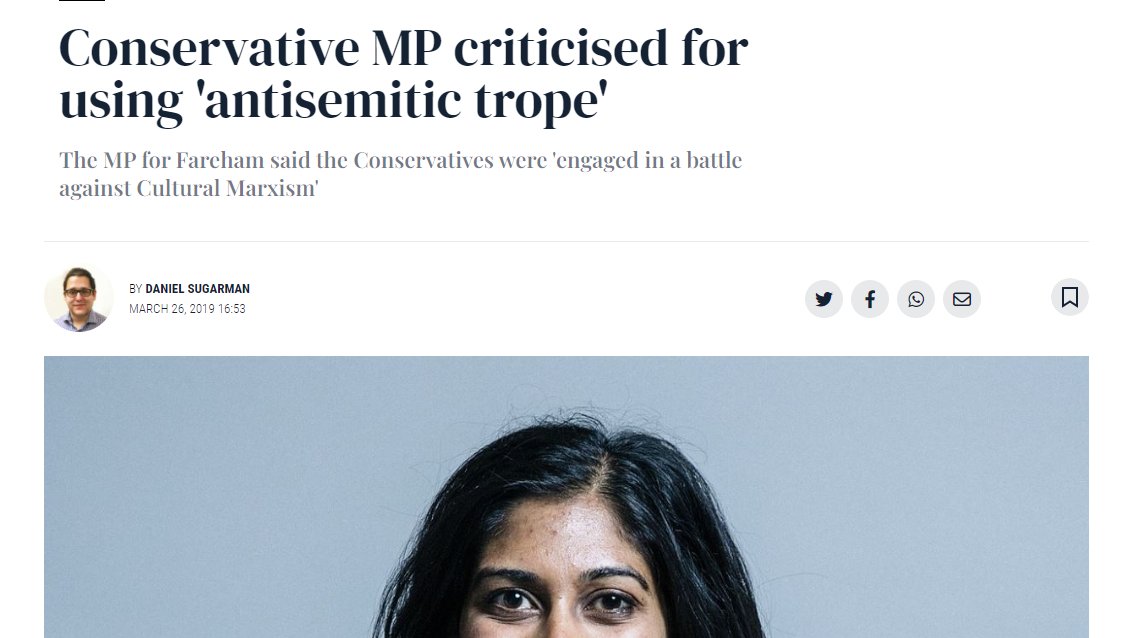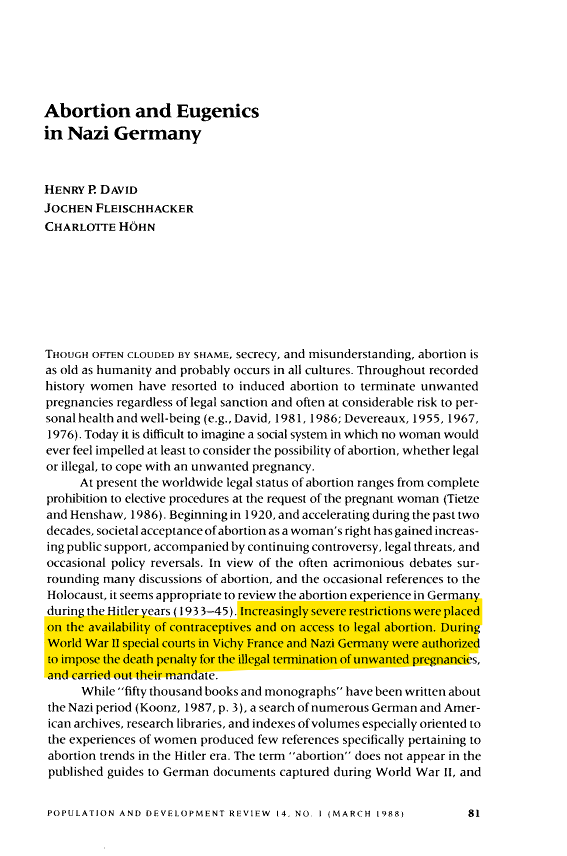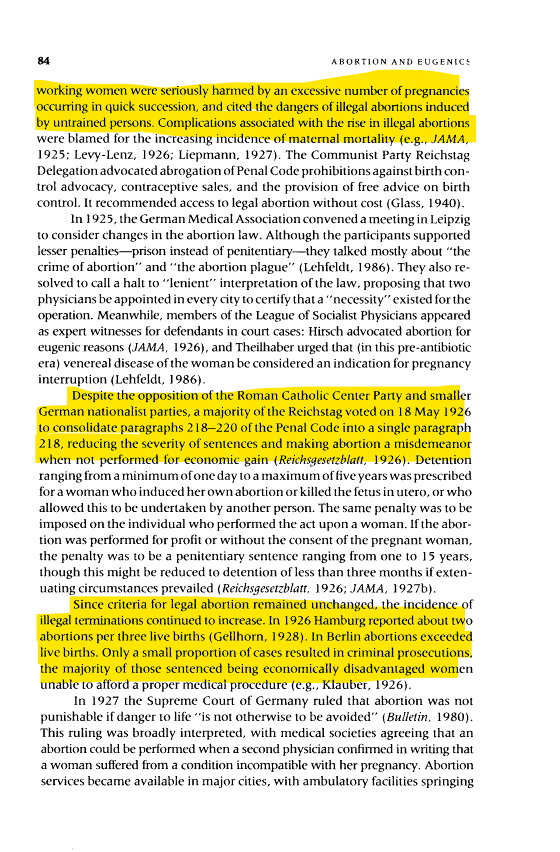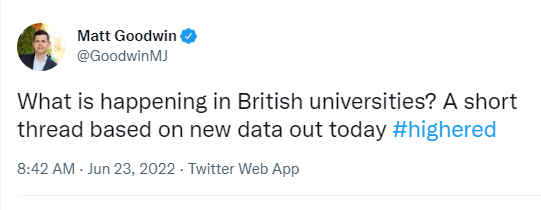
A #THREAD about Brexit, Britain, national identity, & the divisive role of the UK press.
It's a summary of the (paywalled) 2022 article: 'Humiliating & dividing the nation in the British pro-Brexit press: a corpus-assisted analysis', by Tamsin Parnell.
…w-tandfonline-com.hallam.idm.oclc.org/doi/full/10.10…
It's a summary of the (paywalled) 2022 article: 'Humiliating & dividing the nation in the British pro-Brexit press: a corpus-assisted analysis', by Tamsin Parnell.
…w-tandfonline-com.hallam.idm.oclc.org/doi/full/10.10…
The nation is an imagined community (Anderson), ‘a mental [& political] construct that is real only insofar as individuals believe in & identify with it’ (Wenzl, 2020). The imagined national community is constructed, negotiated, & renegotiated through discourse (Billig, 1995).
By discourse, Parnell means ‘linguistic & non-linguistic social practices & ideological assumptions’. National discourse is underpinned by a sense of timelessness, based on the collective memory of a shared history, elaboration of a shared present & vision of a collective future.
As nation-building is a discursive act, there is no single, undisputed national frame: there are multiple, competing, constructions of the nation that differ depending on the discourse producer and production context (Billig, 1995).
A national community is reified through institutional discourses and disseminated through, inter alia, mass communication and education (Wodak et al., 2009).
Just as the nation is socially and discursively constructed, so too are identities.
Just as the nation is socially and discursively constructed, so too are identities.
Identities answer the question of who we are, both to each other & to ourselves. A person can be many things at once (eg British, European, professional, female, a parent etc); identities are multiple, context-dependent & constituted in discourse.
Identity construction is an ongoing discursive process of negotiation between multiple selves & others.
National identities are a form of habitus, ‘a common complex of ideas, concepts or perception schemes’ that are intersubjectively shared & internalised through socialisation.
National identities are a form of habitus, ‘a common complex of ideas, concepts or perception schemes’ that are intersubjectively shared & internalised through socialisation.
National identities are complex patterns of (contested) meanings & values related to a group whose borders are defined by the state.
The collective conception of national identity is strengthened by a belief in united ideals & values which differentiate one nation from others & add emotional weight to group belonging.
Building a collective sense of national identity involves delineating what a nation is & is not, which involves demarcating an Other.
As collective national identities are fluid & context-dependent, Others are never fixed; the construction of a group as an Other depends on socio-political context.
The national identity Tamsin Parnell explores in this paper is Britishness. Britain’s collective identity emerged out of wars with France between the Act of Union in 1707 and the beginning of the Victorian age in 1837.
The British identity narrative is rooted in history and has long placed Britain in opposition to Europe. First, the Reformation, the Industrial Revolution and Victorian values helped to shape Britain as liberal, democratic, globally influential, and detached from the Continent.
The Suez crisis of 1956 then precipitated a post-imperial narrative of national decline. By the time of the EU referendum, Britain’s collective identity had become splintered due to a sense that a forgotten England needed to reassert itself amid increasing devolution.
The Brexit process undoubtedly exacerbated existing fractures, leading to calls for a second Scottish independence referendum based on Scotland’s vote to Remain. Polls now suggest that Scottish support for the domestic Union is weaker than ever.
The British news media has a history of Eurosceptic sentiment that permeates its construction of national identity; since 1973, the British media has ‘been on a journey from permissive consensus’ to ‘destructive dissent’ towards the EU.
Britain has been consistently pitted against Europe in political, economic, and ideological terms, and Britain’s history of parliamentary democracy, its military prowess, and sovereignty have been positioned as the core of British exceptionalism.
In recent years, Britain has been constructed positively in national news media. Events that might be interpreted as criticising aspects of British history, such as the 2012 Olympics opening ceremony, are recontextualised in praise of British creativity and courage.
Britons are envisioned as defiant in their irreverent ridiculing of EU regulations in British tabloids, and in right-leaning national newspapers, the UK is depicted as financially superior to EU Member States.
Within the Brexit context, representations are more nuanced: leading up to the referendum, constructions of a nation that had lost its essence could be found next to more positive representations of Britain.
Negative discursive constructions persisted after the EU referendum: in six articles published the day after the vote, Britain was framed as a nation divided between politicians and the public.
Political research on Brexit and the nation frames Britain as divided along socio-political & cultural lines. It posits that disunity exists between those who benefit from globalisation & those who do not, as well as those who are cosmopolitans & those who are nationalists.
Political divisions persist between those who live in provincial backwaters & those who live in cosmopolitan areas. These divisions crystallise in the political cleavage of Remainers & Leavers – identity labels that now command more allegiance than traditional political parties.
Beyond these divisions between citizens, sociologists have identified a populist rhetoric in which the EU referendum vote is conceptualised as ordinary citizens lashing out against out-of-touch political elites.
Populism is a political style of communication, ‘an anti-elite discourse in the name of the sovereign People’. A populist style contains appeals to the people versus the elite, as well as a narrative of crisis, breakdown, or threat.
This paper extends research about British division and populism by examining discursive constructions of the nation in the pro-Brexit news media during the final year of Britain’s EU membership.
It reveals how many UK newspapers consistently construct Britain as humiliated and divided, between politicians and the public and between British citizens with different political stances. 

It goes beyond the text to consider the socio-political contexts, demonstrating that division is constructed in response to, and incited as part of reporting on, political upheavals.
This paper fills the research gap by offering a corpus-assisted examination of the pro-Brexit media’s construction of Britain as it approached its withdrawal from the EU.
The study focuses solely on pro-Brexit publications because two thirds of British national newspapers had a pro-Leave dominance in their articles around the time of the referendum. Many of the newspapers that voiced a desire to leave the EU also had the highest readership levels.
Pro-Leave discourses, then, constituted a dominant, widely accessible, and widely accessed construction of Britain for readers.
Newspapers were selected based on their stances towards Brexit.
Newspapers were selected based on their stances towards Brexit.
The Express was unequivocal in its attitude, labelling its campaign to persuade readers to vote Leave a crusade on its front page. The Sun was equally transparent, urging its readers to ‘BELEAVE in Britain’ and vote Leave.’
The Mail claimed that people who believed in Britain would vote Leave. The Telegraph pitched a Leave vote as an expression of hope for the future of the country. The Star front page had a bulldog wearing a Union Jack hat & called for the public to ‘make Britain great again’.
Articles had to include ‘Britain’ or ‘British’, ‘Europe’ or ‘European’ and ‘Brexit’, ‘nation’ and ‘people’ somewhere in the text. Including the noun ‘Brexit’ ensured that the articles were related to Britain’s withdrawal from the EU.
The nouns ‘nation’ and ‘people’ limited the texts to those that focused on collective and individual national identities amidst broader discourses about political agreements and politicians. Parnell manually filtered out articles which included non-relevant uses of ‘people’.
Articles were published in March and September 2019. I arrived at these dates by counting the number of relevant articles published each month across the year and selecting the two months that had the highest number of published articles.
Unsurprisingly, the months with the peaks in output corresponded to key political events: an extension to Article 50 past the original withdrawal date (March), the introduction of the Benn Act, and the ruling that the prorogation of Parliament was unlawful (September).
In total, the specialised corpus consists of 350 articles and 316,571 words. Table 1 shows the breakdown of articles and words per newspaper. While the corpus is not balanced, it is representative of the articles that these outlets published in both months 

Of the 36 key semantic domains, nine contained representations of Britain.
Table 2. Key semantic domains related to Britain.
As Table 2 indicates, ‘No respect’ has the highest log-ratio and log-likelihood values of all key semantic domains.
Table 2. Key semantic domains related to Britain.
As Table 2 indicates, ‘No respect’ has the highest log-ratio and log-likelihood values of all key semantic domains.

Two key themes emerge from the ‘No respect’ semantic domain: The humiliation of Britain & Contempt within Britain. The underlying sentiments are humiliation & division, which afflict the relationship between politicians & the public, & interactions between citizens.
There are 16 examples of the ‘Humiliation of Britain’ theme. The most prolific instigator of humiliation is Theresa May, whose Brexit deal and leadership style appear as sources of British humiliation in six examples from March 2019 (when Britain was supposed to leave the EU).
May is depicted as an intranational Other – an enemy to her country & a threat to Britain’s international standing (‘self-respect’, ‘reputation’).
The threat is envisioned as an ongoing spectacle through the present perfect tense of the repeated predicate ‘has been a national humiliation’ (1, 2) and the clause ‘the humiliation this country has suffered’ (3).
The lexicogrammar evokes a dual sense of public helplessness and indignation in the face of political ineptitude, creating a populist narrative of national crisis (Moffitt, 2017):
(1) "The entire handling of the Brexit negotiations has been a national humiliation." (Telegraph).
(1) "The entire handling of the Brexit negotiations has been a national humiliation." (Telegraph).
"Even calling them “negotiations” is a stretch. The Prime Minister's Withdrawal Agreement hands over our country's self-respect along with control of our future." (Telegraph Online, March 2019).
(2) "Oh and 90 per cent of Brits think her [May’s] handling of Brexit has been a national humiliation. What’s been sacrificed here is Britain’s reputation on the world stage." (The Express, March 2019).
(3) "Whatever emerges from the ashes ahead of this week’s Commons votes, nothing can conceal the humiliation this country has suffered under Theresa May’s lock-jawed leadership." (The Sun Online, March 2019).
In Example (1), Theresa May is referred to by her official title as ‘the Prime Minister’ to emphasise her responsibility as the foremost political representative of the nation.
By individualising the prime minister and collectivising the public through the first-person possessive determiner ‘our’, the journalist places May outside of the national 'in-group'.
Through 'possessivation', the Telegraph positions the Withdrawal Agreement as May’s sole responsibility. This responsibility is enhanced through the metaphorical material process ‘hands over’...
...which constructs the loss of the nation’s international standing as a deliberate and deliberated action – a consequence of the political ineptitude of the prime minister and her (mis)handling of Brexit negotiations.
By positioning May’s handling of Brexit as a national embarrassment, the Telegraph Online generates distrust in her ability to secure a stable post-Brexit future for Britain.
In constructing May as an actor that cannot be trusted, the newspaper establishes the grounds for her removal. May resigned three months after Extract (1)’s publication, following Telegraph articles which included calls for her resignation & a headlines like this: 

The argument against May in Extract (1) is predicated on the logic that if she is the source of national humiliation, replacing her as prime minister could produce a deal that gives Britain greater ‘control’ over its post-Brexit ‘future’.
Across all three examples, the newspapers employ lexis from the related semantic fields of death (‘sacrifice’, ‘ashes’) and emotion (‘suffer’, ‘humiliation’).
These lexical choices, alongside the first-person plural determiner ‘our’ in the metonymic noun phrase ‘our country’, simultaneously personify the nation and conceptualise it as the sum of its people.
By depicting the ‘death’ of the nation’s reputation, the journalists reinforce the populist narrative of national crisis. They imply that what is at stake in negotiations is not just a successful Brexit but the existence of the UK as a national powerhouse.
Through the frame of national crisis, the newspapers create a dichotomy between an incompetent prime minister and a suffering population whose future as a collective is hanging in the balance.
Pro-Brexit newspapers also construct a group of pro-European MPs as inflictors of British humiliation because of their ‘infighting’ & ‘refusal to bow to the common good’. These Remain-backing social actors constitute a second intranational Other: Extracts 4-6 are representative:
(4) "Britain has suffered almost three humiliating years of infighting, weak leadership and giving away constant concession to the EU." (Daily Star Online, March 2019).
(5) "Insulated in their Westminster bubble, are they incapable of grasping that their refusal to bow to the common good is destroying faith in democracy, turning the country into a humiliating international joke?" (Daily Mail, March 2019).
(6) "Perhaps the pro-Brussels majority in Parliament – so obscenely out of step with the people they are elected to represent - have already ensured the greatest national humiliation in our history." (The Sun, March 2019).
Examples (4) to (6) offer different representations of what is humiliating Britain and why. The Daily Star, for instance, uses a rhetorical triplet to disparage ‘humiliating years of infighting, weak leadership, and giving away constant concession to the EU’.
The reference to ‘concession’ alludes to the resignation of the Secretary of State for the Department of Exiting the European Union, David Davis, who left due to fears of ‘giving away too much to the EU’.
Alluding to Davis’s resignation provides evidence to readers of May’s poor leadership & highlights the problems associated with a soft Brexit. In contrast to the Star, the Mail envisions a populist scenario in which all politicians are ‘insulated in their Westminster bubble’.
The adjective ‘insulated’, with its connotations of protection & isolation, indicate politicians are sheltered from the consequences of international humiliation; the victims are ‘ordinary citizens’ who are discursively constructed through the metonymy of country for persons'..
in the noun phrase ‘the country’. This discursive differentiation constitutes a populist rhetoric of elites versus citizens & incites indignation towards (allegedly Remain-backing) political actors empowered to make national decisions but protected from their consequences.
Notably, even though May’s approach to Brexit is disparaged by the pro-Brexit press as constantly conceding to the EU, politicians are demonised for not accepting her deal in the nominalisation ‘refusal to bow to the common good’.
The nominal group ‘common good’ personifies the nation, drawing on collective well-being to portray this political stance as an unpatriotic, selfish act of rebellion that sacrifices the nation’s international reputation.
The argument that selfishness ‘destroys faith in democracy’ rests on the idea that politicians are failing to respect the (supposedly homogenous) public opinion and therefore are not fulfilling their responsibility as political representatives in a democracy.
As parliamentary democracy is often framed as the cornerstone of British identity in political discourse, a loss of democracy entails the loss of a collective sense of Britishness.
Once again, then, the imagined unity of the UK is said to be threatened by the undemocratic behaviours of the largely Remain-backing political class.
The rhetorical effect of Examples (4) and (5) is the same: both articles diminish public confidence in MPs’ ability to agree a Brexit deal that will benefit the country.
The argument that the PM & MPs were incapable of agreeing a strong deal for their country resonated with the British public: in the 2019 Audit of Political Engagement conducted by Ipsos MORI, only 25% of the 1,198 adults surveyed had confidence in British MPs’ handling of Brexit.
As the relationship between discourse & social practice is dialectic, the media depiction of political ineptitude likely both reflects & reinforces this distrust among readers.
In other words, the newspapers do not just discursively construct a national crisis, they threaten to induce one by cultivating public distrust in political representatives.
In Example 6, the nation is constructed through the dichotomy of British ‘people’/‘pro-Brussels majority in Parliament’. The pre-modifying adjective ‘pro-Brussels’ provides a more explicit version of the implied Remainer politician/Leaver public divide that underpins Example 5.
The metaphorical phrase ‘obscenely out of step’ presupposes that the only ideological position among Britons is anti-EU sentiment. By linguistically omitting ‘Remainer’ Britons from its construction of the public, The Sun implies that only Leave-voting Britons exist.
Given that only one million votes separated Leave & Remain in the 2016 referendum, this discursive strategy excludes almost half of the voting population in the UK.
Discursively erasing the existence of Remainer identities from a British in-group threatens social exclusion by legitimising intolerance towards political positions that diverge from the (slight) majority.
Perhaps more ideologically remarkable than the socially divisive rhetoric, however, is the construction of ongoing political support for the EU as ‘the greatest national humiliation in our history’. 

Through this claim, The Sun rewrites a version of national history in which the ideological divergence between politicians and a small majority of the public is more problematic for the nation’s reputation than, for example, the Civil War of the 1600s...
...division between pro- and anti-slavery stances in the eighteenth and nineteenth centuries, or contemporary calls for Scottish independence. By ignoring historical examples of British division, the journalist frames Brexit as the most critical juncture in British history.
This construction of national crisis, which displays a manipulation of British history to serve a Leave-backing agenda, commands a sense of urgency and encourages an outraged public reaction towards the present state of the nation.
The pro-Brexit newspapers sow distrust between British politicians and an already sceptical public by undermining Theresa May’s ability to handle Brexit and blaming a group of MPs for indecision over a future Brexit deal.
The populist dichotomy of politicians and the public engenders a pejorative self-reflection on the state of the nation; the country’s proud international standing is increasingly jeopardised in this narrative of national crisis by the incompetence of political officials.
The populist discourse both reflects and reinforces public dissatisfaction with the state of the UK: 56% of participants in the 2019 Audit of Political Engagement believed Britain to be in decline.
The image of division expands beyond the politician-public relationship; the newspapers presuppose that all members of the British public harbour anti-EU sentiment, erasing Remainers from the collective British identity.
This discursive exclusion precipitates social exclusion by implicitly encouraging intolerance of pro-EU views while strengthening pro-Brexit readers’ sense of belonging to a collective political identity of Leave-backing Britons.
The ‘Contempt within Britain’ theme depicts a nation divided along two simplified, populist axes.
The first division is, once again, between politicians and the public.
The first division is, once again, between politicians and the public.
The dichotomisation of political elite versus the public contributes to a broader comment on the state of the nation in 2019. A binary construction of elite versus citizen appears in seven concordance lines, a representative selection of which are reproduces in Extracts 9-12:
(9) "What will have been revealed in a devastating, unforgettable form is the contempt which those who govern feel for those who elect them." (Telegraph Online, March 2019).
(10) "The electorate is being treated with undisguised contempt. If they get away with it – which they probably will – Britain will have ceased to be a proper democracy." (MailOnline, March 2019).
(11) "The courts place themselves above democracy. MPs shun a general election. Our freedoms are betrayed by an elite who think they always know best. For over three years, the establishment has treated our people with an unfettered, sneering contempt." (The Sun, September 2019).
(12) "The Speaker and the Remainer Members of Parliament have betrayed the people and trashed the constitution. A bewildered and furious nation will eventually get its chance to show its contempt." (Telegraph Online, September 2019).
In Examples 9&10, Britons are represented through the functionalisation of the noun ‘electorate’ & the noun phrase ‘those who elect them’. The functionalisation emphasises the power of choice that citizens have to change political representatives (& thus the direction of Brexit).
This public empowerment is juxtaposed with the ‘contempt’ (9, 10, 11) which politicians supposedly feel for citizens, an emotion that is pejoratively intensified through the adjectives ‘undisguised’, ‘unfettered’ & ‘sneering’.
The juxtaposition between public power and politicians’ contempt frames the hostility as arrogance, inciting and legitimising anger towards political representatives.
What is at stake in Examples (10) and (11) is once again the UK’s status as a democracy (‘ceased to be a proper democracy’; ‘place themselves above democracy’).
Although these examples do not explicitly comment on the existence of the nation, in the British context loss of democracy entails the loss of national identity & thus constitutes a national crisis. An implicit call for a reaction to the threat of crisis underpins Example (12).
This extract reveals that contempt between politicians & the public is experienced mutually. The format of public expression – through a citizen’s letter rather than a quote – bolsters the newspapers’ broader claim that Britons are dissatisfied with the state of British politics.
The expression of political disappointment is reinforced by the citizen through the emotion adjectives ‘bewildered’ and ‘furious’ and the metonymy of country for persons in the noun phrase ‘a bewildered and furious nation’.
Overall, the example legitimates anger and confusion and supports the broader implicit argument that citizens should demand change from their political representatives to secure Brexit and protect the country.
The second populist division is between a pro-EU, metropolitan elite, labelled ‘Remainers’, and a hardworking, disillusioned public referred to as ‘Brexiteers’ or ‘Leavers’ (there are 86 instances of Remainer/100,000 words & 71 instances of Brexiteer/100,000 words in the corpus).
('Leaver' is comparably less popular, appearing only 0.9 times/100,000 words).
That the terms ‘Remainer’ and ‘Brexiteer’ persist after the EU referendum indicates that the identities have become what Zürn and de Wilde term a ‘cleavage’.
That the terms ‘Remainer’ and ‘Brexiteer’ persist after the EU referendum indicates that the identities have become what Zürn and de Wilde term a ‘cleavage’.
A cleavage refers to a situation in which several conflicts are subsumed under a single dimension between opposing groups, ‘reinvigorating a new sense of identity politics’.
In the corpus, the ‘Remainer’ identity indexes a group of upper-middle-class, highly educated people who have benefited from globalisation. ‘Leavers’ and ‘Brexiteers’, in contrast, index a politically aware but oft-disdained group of ‘ordinary’ citizens.
The relationship between these two identities is what the ‘Contempt within Britain’ theme captures and mobilises; the representation is particularly prevalent in the Daily Telegraph, as Extracts (13) and (14) demonstrate:
(13) "At Tate Britain, the Brexiteers were booed by visitors to the gallery who stood on the steps and signalled a thumbs down. Here was seemingly London's metropolitan elite jeering the largely out-of-town Leavers as they walked past."
"Perhaps nothing so much summed up the nation's divide. When the Remainers booed, the Leavers shouted back: ‘Losers!’" (Telegraph Online, March 2019).
(14) 'Something nasty in the woodshed has been revealed about a sizeable section of British society - not the alleged racism of Brexiteers, as Remainers would have you believe. No, the long-concealed contempt of the Remainers for most of their fellow citizens' (Telegraph, 03/19).
These examples reveal that the political identities of ‘Remainer’ (13, 14), ‘Brexiteer’ (13, 14) & ‘Leaver’ (13) do not solely reflect attitudes towards the EU.
Rather, the identifiers of ‘Remainer’ (13, 14), ‘Brexiteer’ (13, 14) & ‘Leaver’ symbolise a range of national and social divisions in the pro-Brexit press, particularly in terms of political ideology and socio-spatial divisions.
Through the proper noun ‘London’ and the adjective ‘out-of-town’ in Example (13), the Telegraph Online employs the spatial imaginary of Left Behind Britain to discursively separate London from the allegedly rural rest of the country.
The cosmopolitan-rural division alludes to the EU referendum vote, in which London opted for Remain & most of England’s remaining counties voted to Leave. This context suggests that the gulf between the two camps is related solely to the way people voted in the EU referendum.
As the nominal group ‘the nation’s divide’ indicates, the city-countryside dichotomy also symbolises an intranational problem: the perceived injustice of UK economic policies that facilitate the prosperity of London & its ‘metropolitan elite’ at the expense of other regions.
In this discursive frame, geography symbolises socioeconomic status: the national ‘divide’ is between those who have and those who have not.
By emphasising a geographical and socio-economic distinction between Remainers and Brexiteers, Telegraph Online frames the ‘jeering’ of the metropolitan elite as an insult to disadvantaged Brexiteer readers.
Once again, then, the newspaper perpetuates division in the UK by its selective reporting, which incites bitterness towards a so-called self-serving ‘elite’ and produces a narrative in which Leavers are disadvantaged.
The Telegraph Online’s use of ‘Remainer’ and ‘Leaver’ identities goes beyond merely blaming the EU for national problems. Leave and Remain stances have become new ‘political and social fault lines’ in the UK:
the associated identities now command a stronger allegiance than traditional political parties among Britons.
Framing social divisions within the context of the ref harnesses the strength of the public’s emotional attachment to these identities to shape the political landscape.
Framing social divisions within the context of the ref harnesses the strength of the public’s emotional attachment to these identities to shape the political landscape.
These emotional attachments can be aroused by emotive lexis, such as the adjective ‘nasty’ & the nouns ‘contempt’ & ‘bigotry’ in Example (14), which cultivates a sense of passionate indignation. 

Concerns about the breakup of the UK often cite non-English nationalisms as catalysts, but the conflation of national/political identities in the pro-Brexit press reveals the perception that there is as much division WITHIN the UK’s constituent countries as there is between them.
Tamsin Parnell's important paper reveals the construction of a humiliated and divided Britain in the pro-Brexit press in 2019.
Pro-Brexit newspapers argue that the ineptitude of MPs constitutes a national crisis that threatens Britain’s long-standing reputation for democracy.
Pro-Brexit newspapers argue that the ineptitude of MPs constitutes a national crisis that threatens Britain’s long-standing reputation for democracy.
A populist dichotomy of political elite versus ordinary citizens underpins the argument; the politician-public relationship seemingly radiates mutual contempt.
This divisive rhetoric in the UK's pro-Brexit national press captures and reinforces the public mood; 50% of people surveyed in the 2019 Audit of Political Engagement felt that the main political parties do not care about people like them.
Depicting a fractured relationship between politicians and the public supports the newspapers’ political agenda to shift the balance of power towards MPs who support a hard Brexit.
The rhetoric cultivates public dissatisfaction with the existing Parliament, a sentiment Theresa May could not afford to ignore after facing a vote of no confidence. But the pro-Brexit press does not only depict division between politicians and the public:
Under the EU-related guise of the nouns ‘Remainer’ and ‘Brexiteer’, it envisions a public cleaved apart by socio-economic and geographical disparities. The Daily Telegraph persuades readers that Remainers consider them inferior.
There are consequences to this divisive rhetoric.
There are consequences to this divisive rhetoric.
The Remainer-Brexiteer dichotomy nurtures a belief in an unjust gulf in British society between those who do and do not benefit from globalisation, which risks creating a deep-rooted bitterness in the UK at a time when collective national identity is paramount.
In sum, the pro-Brexit press constructs a nation that is more splintered than ever.
The labels ‘Remainers’ and ‘Brexiteers’ reduce various political and socio-economic positions to a bitter binary of ‘elites’ and ‘ordinary people’.
The labels ‘Remainers’ and ‘Brexiteers’ reduce various political and socio-economic positions to a bitter binary of ‘elites’ and ‘ordinary people’.
The divisive rhetoric mobilises EU-related identities for political gain but risks fomenting a resentment so deep that it may be difficult to harness a collective post-Brexit national identity after the transition period.
By blaming politicians & Remain-voting citizens for socio-political national divisions in their Brexit reporting, the newspapers disregard & obfuscate their own role in inciting dissatisfaction & in contributing to disunity in the UK. 🇬🇧
#PowerWithoutResponsibility #Leveson2


#PowerWithoutResponsibility #Leveson2



• • •
Missing some Tweet in this thread? You can try to
force a refresh























